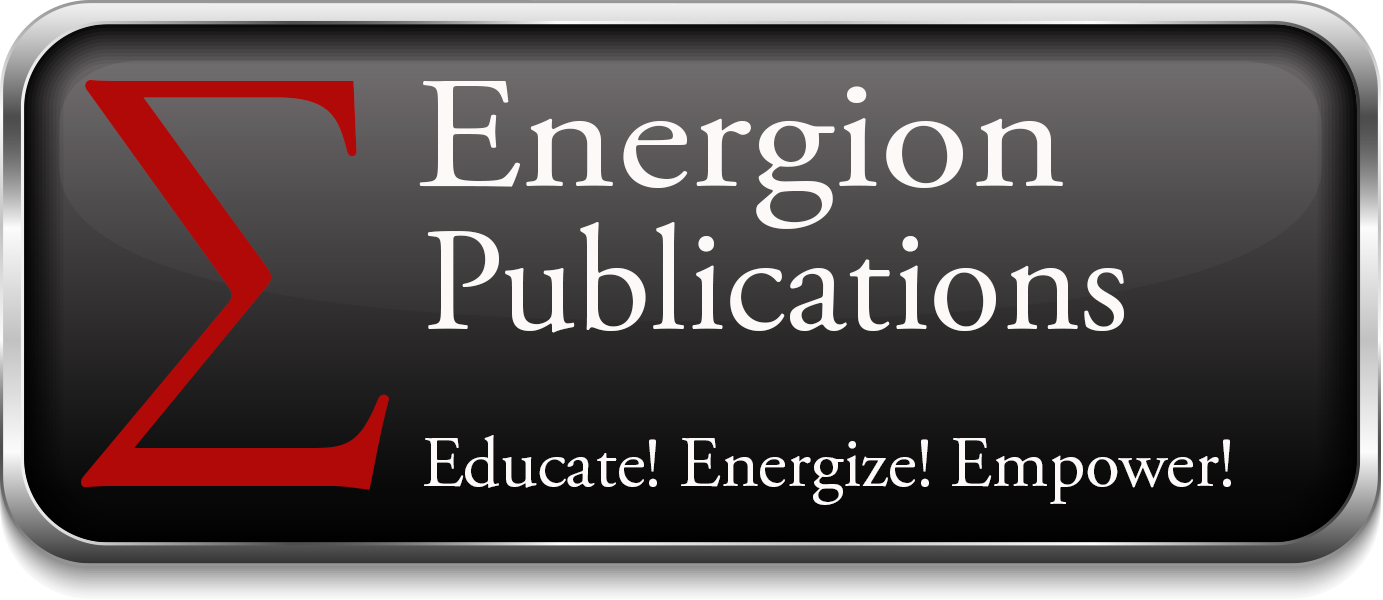The Problem with the Jesus Paradigm
 I’ve just named The Jesus Paradigm as the Energion Publications book of the week. So why am I immediately following that up with a post about “the problem” with this particular book. Publishers shouldn’t talk about problems with their own books, should they?
I’ve just named The Jesus Paradigm as the Energion Publications book of the week. So why am I immediately following that up with a post about “the problem” with this particular book. Publishers shouldn’t talk about problems with their own books, should they?
Well, I don’t always play by the social rules, and this is one case. You see, I have had complaints about this book. You’ll notice I used “complaints” (plural) but I refer to “a problem” (singular). That’s because I think the complaints center around one problem.
One complaint came from a pastor who read an advance copy and then told me that he was not so sure about this book and its author. He hoped to keep his job all the way to retirement. He was concerned about the threat to the authority of pastors.
Another complaint came from someone who said that the book had quite a number of good ideas, but that it seemed unfinished. “Why doesn’t Dr. Black get around to telling us what to do?” this reader asked me.
Now you may think that these complaints relate to two very different problems. I don’t agree. I think they relate to one problem, and it’s a problem with “the Jesus paradigm” (the paradigm), not with The Jesus Paradigm (the book). Now don’t call for me to be burned at the stake for blasphemy. I’m not saying there’s something wrong with the paradigm that Jesus proclaimed. There’s a problem with us, with the people who are to implement it.
You see, I’m convinced that we, in the church, are afraid of the Bible. We’re scripture-phobic. How can that be? We use the word “Bible” in our church names. Even secular stores have many shelves of Bibles in dozens of translations which have sold many millions of copies. There are pew Bibles, Bibles on the shelves of Sunday School rooms. I might as well confess it—I have a whole book case dedicated to Bibles, and not all of my Bibles will fit in it.
Then there are all our Bible classes, our Bible readings in our church services, and our Bible study small groups. It’s hard to find a Christian who won’t say “yes” when asked if he or she “believes the Bible.” You can even find quite a number who, all evidence to the contrary notwithstanding, will loudly announce that they do everything commanded in Scripture.
So how can I say that we’re afraid of the Bible?
Let me tell a few stories. The first happened shortly after I returned to church in a United Methodist congregation. I was asked to teach an introductory Bible class for a group of young people. The class was to follow a program much like a college class. One day I assigned the reading for a week. It involved 200 pages from non-biblical sources, such as Bible handbooks, as well as the entire book of Joshua. Nobody complained about 200 pages of non-biblical material, but everyone groaned and asked me if I really meant that they had to read the whole book of Joshua. In the closest Bible I have at hand right now it’s about 24 pages.
I wrote a set of study notes on the book of Hebrews, which I later turned into a study guide. I’ve taught from that book many times. Not one in ten of my students have ever done the reading. They’re willing to hear me talk about it. They’re willing to discuss it based on their general impressions of what’s right and wrong, but they don’t want to take the time to read it. And while Hebrews can be some very heavy reading, it’s even shorter than the book of Joshua.
Now consider how many times you’ve been in church committees or boards, or just in general discussions of how the church should be managed, and be honest. How many times is the first or even the last resort a reference to scripture? On those few occasions when it is, how often is it to someone’s favorite text, brought forth in support of their very human agenda?
You see, I think we like Bible texts (when we get to choose them), we like Bibles on the shelf, we like the reputation of being people who like the Bible, we like to listen to other people who like and study the Bible, we’re very happy with the word Bible, but when it comes right down to it, we really don’t want to find our answers in the Bible.
One of the greatest compliments my wife has ever paid me was when she told a group we were teaching that my first resort on any question was the Bible. The fact is that I wish that was true. All too often, however, it is not.
Now I’m not one of these wooden literalists who believes that Paul walked from city to city, so we should too. Truth be told, there are hardly any such literalists, and they are generally made of straw. That’s the sort of argument we use when we want to avoid turning to God’s message in scripture.
It’s pretty obvious that I don’t live in Corinth. But I can learn from Paul’s instructions to that church. Just because I don’t wear a cloak doesn’t mean I can’t go out as Jesus instructed. The difference in life in the first century world doesn’t change the requirement that I surrender all to Jesus Christ and serve Him. I may have a different church structure, but that doesn’t change the bottom line that I am to be a servant as a leader, and not a lord.
I think we find the Bible very hard to read and apply because we’re so busy trying to avoid the overall uncomfortable message that we find it easy to get tangled up in the much more contentious details. Somehow we’d rather argue about the appropriate method and age for baptism than to deal with the death to self that’s involved. We’d much rather debate about styles of worship, orders of service, and the proper length for a sermon than to give ourselves wholeheartedly to God.
Geoffrey Lentz, answering a question in this month’s Bible Study Paths Webzine said:
…the church’s biggest problem today is not that we are not focused enough on making God relevant to humanity, but that we are not focused enough on making humanity relevant to God.
And that’s the problem with the Jesus paradigm. We don’t want to do it. We want God to do things our way. We don’t want to have our lives disrupted. We don’t want to be new creatures and to be changed. What’s more, we have ample traditions to let us avoid all those things. I’m not against tradition. It can and should be the collected experiences of the Body of Christ, which can help guide us. I don’t want to dismiss what early Christians said about the Bible. But too often we use tradition as a grab bag for excuses to avoid what the foundational document, the Bible, has to say, just as we can use our own proof texts to avoid what the Bible has to say. It’s amazing how easy it is to find texts that condemn my neighbors sexual sins (but not our own), and how hard it is to find those that might, for example, take our money and put it to use for God’s kingdom.
The Jesus Paradigm (the book this time!) is a book that tries to lead us back to the source. How are we to solve the problems in our particular churches? We go back to the same source. Prayerful, Spirit-led, in-depth Bible study combined with an openness to applying the Jesus paradigm in our lives will provide us with many ideas on how we need to work.
In another interview in this month’s Bible Study Paths, Emily Capes said of adults wanting to serve with youth:
It doesn’t really matter what you do or use as long as they know that we are truly interested in them.
I think the praxis would follow if we really got the basic paradigm of surrender. And boy do I have a long way to go on that one!
We want a program. But the Jesus paradigm is not a program; it’s a change of heart that results in a change of life, and a change in the way we serve.


